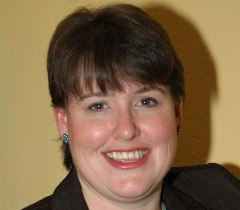 My wife, Joyce, and I planted our local church 29 years ago, Jan. 29, 1984, in the Sunset Park section of Brooklyn, N.Y. We were not sent out with any money and had only a handful of people who volunteered to serve with us. The following is based on all the mistakes I have made as a church planter, and the lessons I wish someone had coached me through.
My wife, Joyce, and I planted our local church 29 years ago, Jan. 29, 1984, in the Sunset Park section of Brooklyn, N.Y. We were not sent out with any money and had only a handful of people who volunteered to serve with us. The following is based on all the mistakes I have made as a church planter, and the lessons I wish someone had coached me through.
1. Be sent from your local church. Unfortunately, many send themselves and just “went” instead of being “sent.” The Bible teaches us that we should not preach unless we are “sent” (see Romans 10:15).

 This month, I’ve been looking at multiple tools for looking at how people experience your church. Hopefully, these tools are helpful to you as you consider how you interact with people.
This month, I’ve been looking at multiple tools for looking at how people experience your church. Hopefully, these tools are helpful to you as you consider how you interact with people. It is 5:30pm. Sam comes through the door, intent on surprising his wife Sarah. He finds her stirring spaghetti with one child wrapped around her leg, and the other hollering from the bathroom.
It is 5:30pm. Sam comes through the door, intent on surprising his wife Sarah. He finds her stirring spaghetti with one child wrapped around her leg, and the other hollering from the bathroom. Are you missing prime opportunities to reach and engage the elusive college demographic?
Are you missing prime opportunities to reach and engage the elusive college demographic? Two years ago I moved to southern New Hampshire with my family. Prior to that, we had been involved deeply in a church plant for almost a decade—serving in leadership, developing marketing tools, and loving the people in that community like family.
Two years ago I moved to southern New Hampshire with my family. Prior to that, we had been involved deeply in a church plant for almost a decade—serving in leadership, developing marketing tools, and loving the people in that community like family. The key lies in knowing how to develop strong leaders
The key lies in knowing how to develop strong leaders
